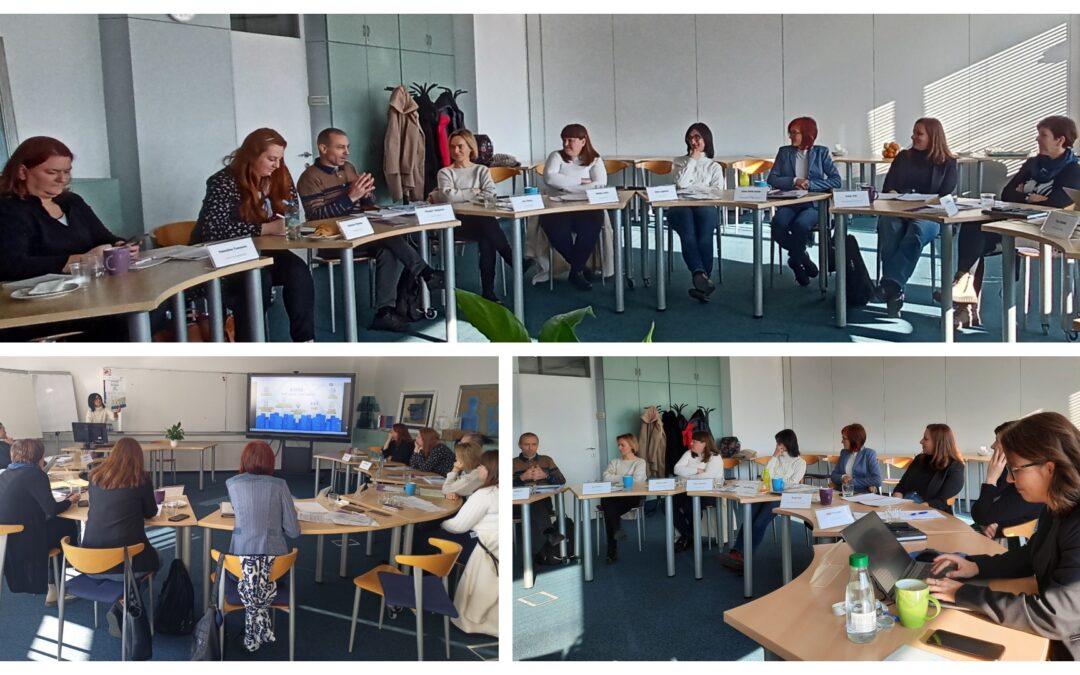Self-Directed Learning Centres have been part of ALE for over 30 years, providing access to diverse learning materials and resources as well as professional support for self-directed learning.
However, these centres now face new challenges due to social and technological changes, the ever-evolving target group and the integration of guidance for self-directed learning into the public sector.
The discussion focused on how these changes affect the work of counsellors and the operation of the centres, which new target groups are emerging, which topics are gaining significance, what professional support counsellors need and what new opportunities exist for the development of Self-Directed Learning Centres.
What did the counsellors highlight?
The counsellors highlighted the following topics:
- greater collaboration among professionals within organisations and strategic networking with stakeholders such as the Employment Service of Slovenia, the Chamber of Commerce and Industry of Slovenia (CCIS) and administrative units;
- changes in target groups, including a rise in the number of immigrants due to global crises and more adults with special needs;
- a decline in visits to Self-Directed Learning Centres due to the increasing availability of computer equipment at home;
- a growing demand for learning support;
- an overlap of counsellors’ roles, which now include guidance, learning support and facilitating the learning process;
- a greater need for multidisciplinary knowledge, particularly in digital technologies and Slovenian language learning.
During the session, we identified several needs for Self-Directed Learning Centres:
- the development of e-learning materials for various target groups, especially immigrants, digitally illiterate individuals and those with lower education levels, with a focus on learning Slovenian;
- the inclusion of deaf and hard-of-hearing learners and the development of adapted learning materials;
- strengthening the visibility of Self-Directed Learning Centres through national promotion, social media, thematic workshops and outreach activities;
- the development of applications and video guides for using digital devices and exam preparation.
At the end of the discussion, the moderator, Urška Pavlič, emphasised the importance of opening up Self-Directed Learning Centres to the local community, engaging with the broader society and ensuring accessibility for all adults, with a particular focus on strengthening outreach activities. The key findings of the focus group will be incorporated into the professional document titled Guidelines and Protocol for Implementing and Documenting the Guidance Process in Self-Directed Learning, which will outline future steps for operating and developing Self-Directed Learning Centres.
What’s next?
Between 2025 and 2029, we plan to:
- 2025: Upgrade the Self-Directed Learning Centres portal;
- Organise a thematic day on self-directed learning as part of Days of Guidance for Learning;
- Host a professional event celebrating the 30th anniversary of the first Self-Directed Learning Centres;
- 2025, 2027: Conduct training for counsellors;
- 2026, 2029: Develop new e-learning materials;
- 2026, 2027: Develop counselling tools for self-directed learning.
Stay tuned for further project activities and events.
Teja Dušak (teja.dusak@acs.si), SIAE


